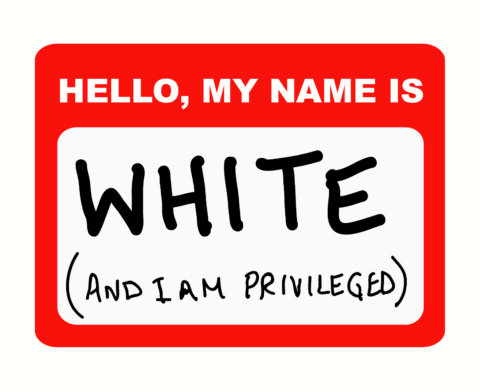A Canadian university was recently host to the annual White Privilege Symposium. This is a step in the right direction for the institution, but it opens up the discussion of how post-secondary institutions should deal with the issue of privilege.
Brock University in St. Catherines, Ont. hosted the White Privilege Symposium from Sept. 30 to Oct. 1. This was the first time in the event’s 18 years that it took place in Canada. The symposium focuses on approaches to racial inequality and the dismantlement of white supremacy, with guest speakers and lecturers speaking to what I assume would be a primarily white audience.
In fairness, no one can argue that the school didn’t earn the right to host the event. In 2014, students participating in a costume contest on campus not only opted to dress in blackface, but actually won the competition as a result. While unwarranted and highly inappropriate, I think we can all agree that this kind of behaviour is actually pretty normalized and not all that surprising.
blackface, but actually won the competition as a result. While unwarranted and highly inappropriate, I think we can all agree that this kind of behaviour is actually pretty normalized and not all that surprising.
The symposium’s migration northward is a landmark moment when it comes to advancing discussions of white privilege in Canada, which I think is critically important. It’s easy for white Canadians to let our interpretation of privilege be informed by our voyeuristic observation of the United States news media, but to do that is to shirk our own responsibility and pretend that we’re doing much better.
I think the University of Saskatchewan could benefit from the self-examination of a white privilege symposium as well. My only concern is that the symposium goes about things the wrong way.
While privilege is a very real problem and a legitimate issue worth discussing, the existence of “check your privilege” as a punchline or lazy retort is evidence that people who don’t take the concept seriously choose to laugh in its face instead. How do you combat that viewpoint?
Lots of people also seem to think if they acknowledge the existence of privilege, then they’re admitting to being a bad person. As a result, they’re hesitant to even allow for the existence of privilege as a concept.
I would have to wager a guess that a conference with a $95 entry fee isn’t likely to entice those who feel they’ve made their mind up about the non-existence of white privilege and don’t want to be told otherwise. A symposium seems to be preaching to the converted.
The U of S has a whole channel devoted to reconciliation and white-settler identity, but is that really making much impact? As far as I know, these resources are going pretty well unnoticed. If you can’t give that education away for free, would a conference on the subject make much of an impact?
To be completely fair, it’s not like it’s the job of the U of S to make sure all students understand white privilege. Hypothetically speaking, by the time you make it to university you should be able to recognize and understand the types of privilege you have. Still, you have to wonder how its approach can be more impactful.
It seems that at the end of the day, education about privilege is something that people need to choose to inform themselves on. Forums, symposiums and web resources are nice, but if people aren’t opening themselves up to them, they’re likely only going to be met with ignorance and ridicule.
White privilege isn’t a concept created and used to discredit or vilify white people — despite the most passionate arguments otherwise — and making the choice to push past that misconception is the first step in coming to terms with it.
—
Zach Tennent / Opinions Editor
Graphic: Lesia Karalash / Graphics Editor
Leave a Reply